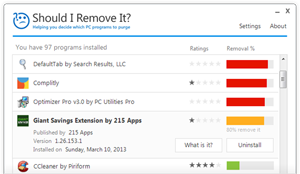Import table
advapi32.dll
RegSetValueExW, RegisterEventSourceW, StartServiceCtrlDispatcherW, RegisterServiceCtrlHandlerW, DeregisterEventSource, ChangeServiceConfigW, RegCreateKeyW, SetServiceStatus, ControlService, DeleteService, CreateServiceW, OpenSCManagerW, OpenServiceW, CloseServiceHandle, CryptAcquireContextW, RegSetKeySecurity, GetSecurityDescriptorLength, MakeSelfRelativeSD, ReportEventW, LsaOpenPolicy, LsaQueryInformationPolicy, LsaFreeMemory, LsaClose, CryptReleaseContext, RegNotifyChangeKeyValue, AllocateAndInitializeSid, CryptGenRandom, FreeSid, RegDeleteValueW, SetSecurityDescriptorDacl, RegEnumKeyExW, LookupPrivilegeValueW, AdjustTokenPrivileges, EqualSid, RegDeleteKeyW, RegQueryInfoKeyW, RegQueryValueExW, RegCloseKey, RegCreateKeyExW, RegOpenKeyExW, InitializeSecurityDescriptor, GetLengthSid, SetSecurityDescriptorOwner, SetSecurityDescriptorGroup, GetTokenInformation, OpenProcessToken, GetAce, InitializeAcl, AddAccessAllowedAce
kernel32.dll
WaitForMultipleObjects, SetErrorMode, InterlockedDecrement, GetSystemDirectoryW, GetACP, SetFilePointer, GetLocalTime, GetCommandLineW, Sleep, QueryPerformanceCounter, GetTickCount, GetCurrentProcessId, GetSystemTimeAsFileTime, TerminateProcess, UnhandledExceptionFilter, SetUnhandledExceptionFilter, GetModuleHandleA, GetStartupInfoW, ExpandEnvironmentStringsW, GetConsoleCP, LocalAlloc, FormatMessageW, LocalFree, CreateMutexW, CreateNamedPipeW, HeapFree, HeapAlloc, GetProcessHeap, VirtualFree, VirtualAlloc, WriteFile, lstrlenW, lstrcpyW, GetLastError, InterlockedIncrement, lstrcmpiW, MultiByteToWideChar, WideCharToMultiByte, lstrlenA, LeaveCriticalSection, EnterCriticalSection, GetCurrentThreadId, CloseHandle, GetCurrentProcess, WaitForSingleObject, InitializeCriticalSection, DeleteCriticalSection, lstrcatW, GetModuleFileNameW, lstrcpynW, FreeLibrary, SizeofResource, LoadResource, FindResourceW, LoadLibraryExW, GetFileSize, CreateFileW, GetProcAddress, LoadLibraryA, GetSystemDirectoryA, CreateEventW, InterlockedExchange, ReleaseMutex, PostQueuedCompletionStatus, SetLastError, GetOEMCP, SetHandleInformation, CreateIoCompletionPort, CreateProcessW, ReadFile, OpenProcess, PeekNamedPipe, GetSystemTime, SetEvent, TerminateThread, GetVersionExW, GetQueuedCompletionStatus, CreateThread, DuplicateHandle, InterlockedCompareExchange, ResetEvent
msvcrt.dll
DllMain
ntlsapi.dll
NtLicenseRequestA, NtLSFreeHandle
ole32.dll
CoInitializeSecurity, CoUninitialize, CoTaskMemRealloc, CoTaskMemAlloc, CoTaskMemFree, CoRegisterClassObject, CoRevokeClassObject, CoInitialize, CoInitializeEx
psapi.dll
EnumProcesses
user32.dll
LoadStringW, CloseWindowStation, CloseDesktop, wsprintfW, CreateDesktopW, SetProcessWindowStation, CreateWindowStationW, OpenWindowStationW, GetProcessWindowStation, wsprintfA, LoadStringA, MessageBoxW, CharNextW
ws2_32.dll
WSASetEvent, WSACloseEvent, WSAResetEvent, WSADuplicateSocketW, WSACreateEvent, WSAEventSelect, WSAEnumNetworkEvents

